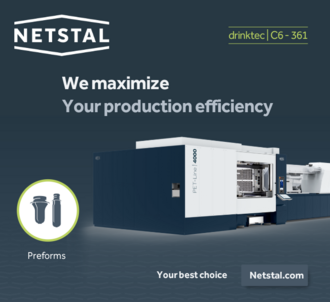Located at its factory in Klaipeda, Lithuania, offering access across Europe for customers and suppliers, RETAL’s R&D laboratory serves the whole of its far-reaching network of facilities throughout Europe and North America.
Aleksandr Grinko, Chief Quality Director at RETAL, explains how the evolution of the company’s laboratory is beneficial. Grinko says, “Some time ago, we realised that the impressive capabilities of our R&D team, coupled with the new technology we invested in, meant that we could have a wider scope than our own R&D. Of course, this is at the heart of what we do; we work closely with various teams at RETAL, particularly design and sales, to be able to create and perfect our preforms and closures in accordance with customer requirements, but what we saw was that we could test third-party preforms and closures too.”
This realisation has become a reality, thanks to further investment in the most advanced testing equipment and the dedication of Grinko and his team. The project began in 2016, with the careful formation of technical specifications such as the equipment and assessment of potential benefits. Working with long-term partners including one of the world’s leading beverage brands, RETAL took its in-depth knowledge of closures and preforms development and integrated new equipment to enable testing of third-party products and produce data packs.
Full range of tests
Grinko continues, “We can offer a full range of tests for carbonated soft drinks and non-carbonated beverages (CSD & NCB), including prototype development, using our modern equipment, which includes a capping and filling station, large climate chambers that are 750 litres each, an automated torque tester, optical shelf-life tester, and automated open performance tester – these are all from Steinfurth – plus a Zeiss automatic measuring system, plus various other machines and tools.”
The Zalkin pilot capping line delivers semi-industrial testing, which allows the functionality of newly-designed closures that have been produced from a new type of raw material to be testing in a highly valuable manner. Grinko explains, “The capacity of this line if 10 thousand bottles per hour and it lets us quickly detect hidden defects in a reduced time. Previously, tests were carried out on customers’ lines, but of course this is far better in terms of cost, ease and speed.”
Equipment at the RETAL testing laboratory also tests for temperature, humidity and oxygen permeability.





